Michael Bauer, regional head of production at Mercedes-Benz and Jose Arreche, plant manager at Seat emphasised the importance of data and digitalisation in the transformation of their plants at the Automobil Produktion Kongress 2024, but stressed the evolving role that people will play in production.
This article first appeared on AMS’ sister site, Automobil Produktion

Michael Bauer, Mercedes-Benz’s head of production for Europe and South Africa, and Jose Arreche, plant manager of Seat Martorell, explained how the transformation of their plants is constant. “Producers can never win. Either we lose or we draw,” said Arreche, who made it clear just how huge the transformation of the production network has been. “We have to question everything we have done over the last 60 years,” he added.
Arreche openly admitted that compliance with safety standards is sometimes a hinderance. “We have been struggling with all systems for months because we can’t guarantee that they are all secure,” he said. Despite this, Arreche said he draws strength from the plant team and the cooperation across the wider VW Group, Seat’s parent company. They meet once a quarter to exchange new ideas and developments in plant transformation, sharing best practice and lessons learned. However, according to Arreche, these are not just presented. Each site manager must then check whether the idea can also be implemented at their site and if not, they must also justify this.
Mercedes’ goal to make production 20% more efficient
For both Seat’s Arreche, who wants to ensure that all plant employees think digitally, and Mercedes’ Bauer, people are still at the heart of the transformation. Like Arreche, Bauer said he is also open and admitted that it is not always easy to convince all employees of the benefits of digitalisation. Nevertheless, Mercedes is giving it a try.
Among other things, the Stuttgart-based company is pursuing the goal of regularly collecting employees’ opinions and needs and implementing them within 14 days to help with any hesitancy towards digitalisation. “Digitalisation is the most important vehicle for remaining competitive in the future,” Bauer clarified. He summarised the three main factors influencing production as market conditions, geopolitics and energy costs.
Bauer’s keynote speech also included the hot topic of the moment - AI. “Artificial intelligence is another step that is helping us to rethink many processes in our production,” he explained. Bauer said that the car manufacturer has already achieved energy savings of 20% in the paint shop using AI, and Mercedes is aiming for the same 20% increase in efficiency for the entire vehicle production by 2025. “There are a lot of production engineers here, I don’t need to explain to you how important this is,” said Bauer, addressing the audience in Munich.
Mercedes waves goodbye to 100% electric
Exactly one year ago to the day, the respective production managers of the OEMs at the APK conference, Seat’s executive vice-president for Production and Logistics, Markus Haupt and Jörg Burzer, board member of Mercedes-Benz Group AG for Production, made it clear how important digitalisation is for them, stating that the transformation of production is not possible without digitalisation. But while Mercedes-Benz was still fully committed to 100% e-mobility in 2023, this has since changed. Regarding the change of heart, Bauer said: “We are able to produce both, whether electric or combustion engines. This is the harvest of the work of the past.”
Seat relies on three pillars to increase efficiency
“We make decisions based on data and not on experience,” said Haupt at the 2023 APK event. For him, digitalisation is a tool to increase efficiency and product quality. Supply Chain Control Tower is the name of the project that aims to ensure fewer disruptions in Seat’s supply chain. “The system carries out its own analyses and uses artificial intelligence to suggest ways to optimize our supply chains,” explained Haupt. The flow of information must be designed in such a way that everyone involved has access. Currently, the onboarding of suppliers is at around 90%. If a problem occurs somewhere, an early warning system sounds the alarm and production can be adapted to the new circumstances at short notice.
The second pillar is predictive maintenance. “We come from a world of corrective maintenance,” admitted Haupt. Seat is now hoping for a significant optimisation of resources. At least in terms of quality control, the head of production wanted to see a fully autonomous factory in the future. Seat wants the machines to make suggestions for corrections in the future. Regarding production, Haupt added: “I find it difficult to imagine a completely human-free factory.” Manual activities would not yet be eliminated. But in principle, people will be working at a different workplace in the future.
Mercedes cooperates on digitalisation
Both Haupt and Burzer, despite all the rationalisation and increased efficiency, felt that the focus should remain on people. The topic of qualification therefore plays an important role at both OEMs. Both agreed that employees are needed to successfully shape the transformation of production. For Burzer, another key issue is digitalisation. To ensure that this progresses quickly, the company is cooperating with Siemens in connectivity, with Microsoft for the cloud and with Nvidia for the digital twin.
However, the MO360 production ecosystem was developed in-house. The next step is to merge it with the future operating system MB.OS. The Swabians want to launch their own operating system in 2025 and roll it out across the entire model range. In terms of production, this means “bringing product and process together”, according to Burzer.
Mercedes relies on its own wind farms and solar plants
In addition to digitalisation, Burzer also spoke about the overarching topic of sustainability. To achieve its own goal of becoming CO2-neutral by 2039, the company is building its own wind farms and “over one million square meters of photovoltaic systems”. An additional focus was on Burzer’s “heart topic” – battery recycling. The company’s first own plant for this was to be built in Kuppenheim by the end of that year.
Of course, there is no shortage of construction sites. Nevertheless, the focus remains on “building the most desirable vehicles in the world”. In this context, Burzer rejected a broader orientation towards becoming a mobility service provider. “We believe in individual mobility. It is clear to us that it will continue to play a major role after 2030. We are aiming to satisfy this customer need.”
Automobil Produktion Kongress took place in Hochhaus Süddeutscher Verlag, Munich on 16-17 May.
Run in partnership with AMS’ sister site, Automobil Produktion, the conference brought together leaders in the industry to disuss the growing importance of digital transformation in manufacturing and logistics as well as IT integration in vehicle production.
Topics
- Artificial intelligence
- Automation
- Digital Twin
- Digitalisation
- Digitalisation and Automation
- Electrification
- Europe
- EV manufacturing
- Factory Investment
- Factory Transformation
- Latest Manufacturing Insights
- Mercedes-Benz
- OEMs
- Operational Excellence
- Predictive Maintenance
- Process Improvement
- Quality
- Robotics
- Seat
- Smart Factory
- Sustainable production
- Sustainable strategies
- Systems
- Training and upskilling
- Virtual reality
- VR and AR Systems




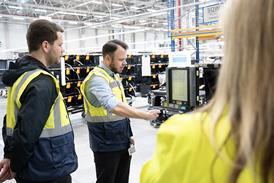







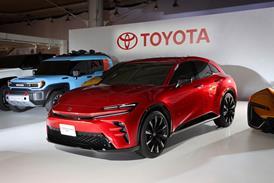






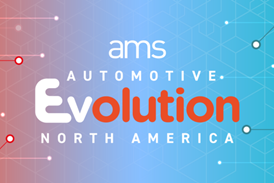









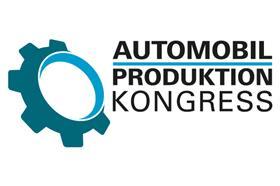
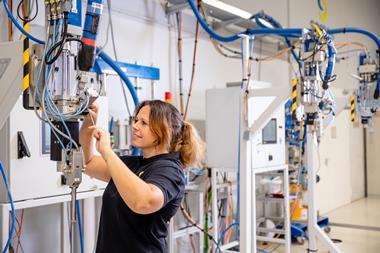
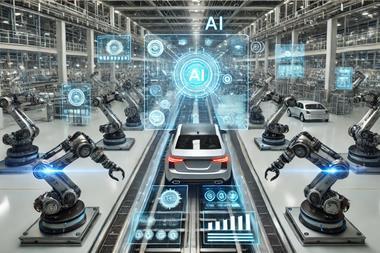
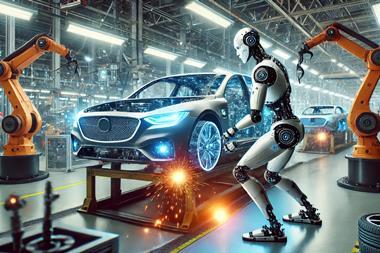
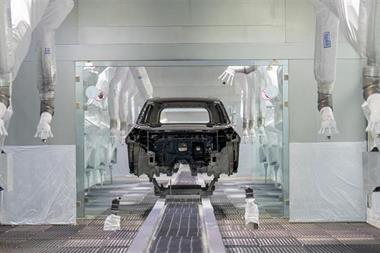

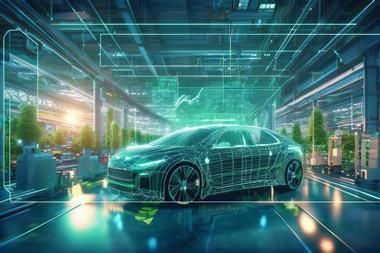



No comments yet